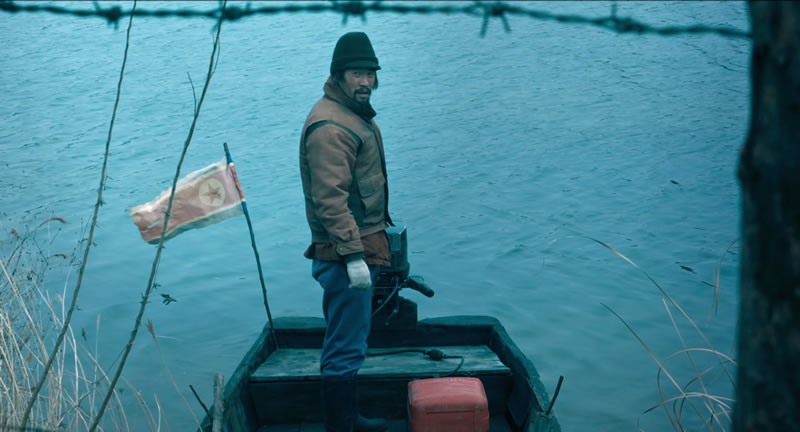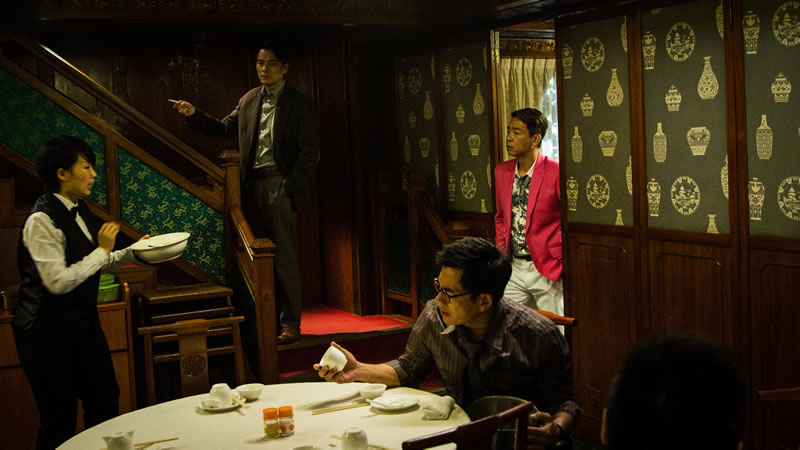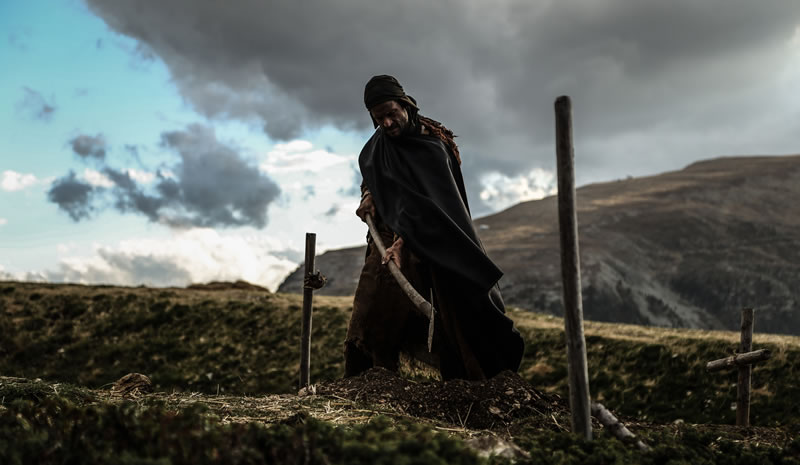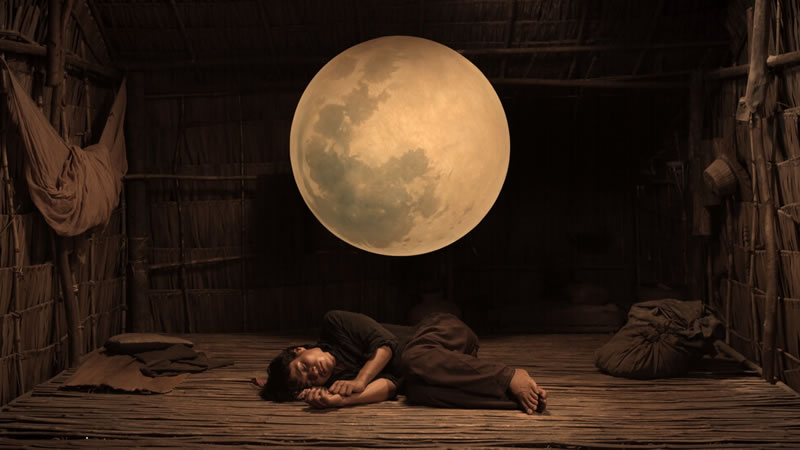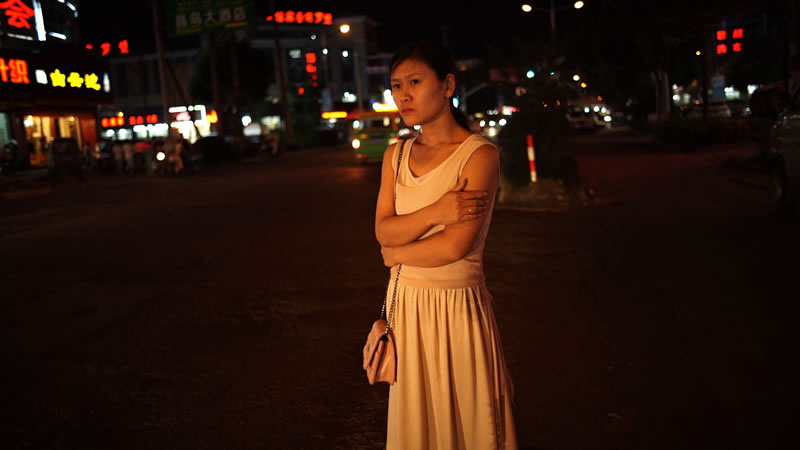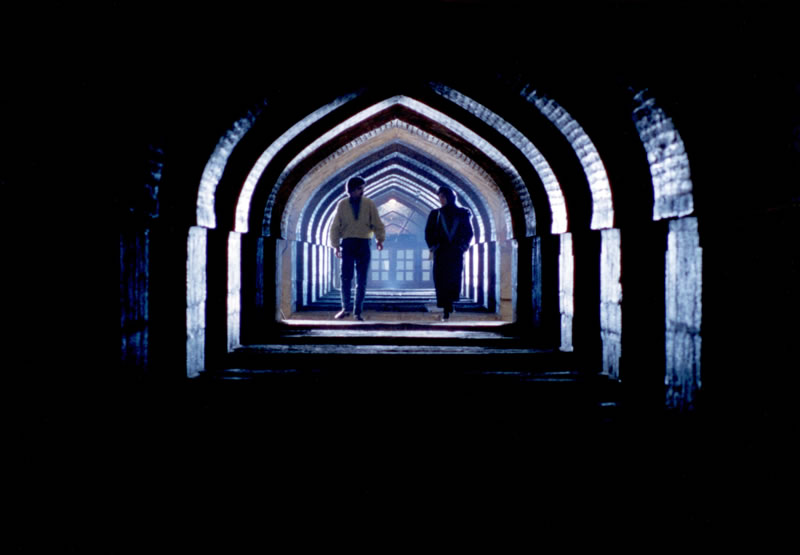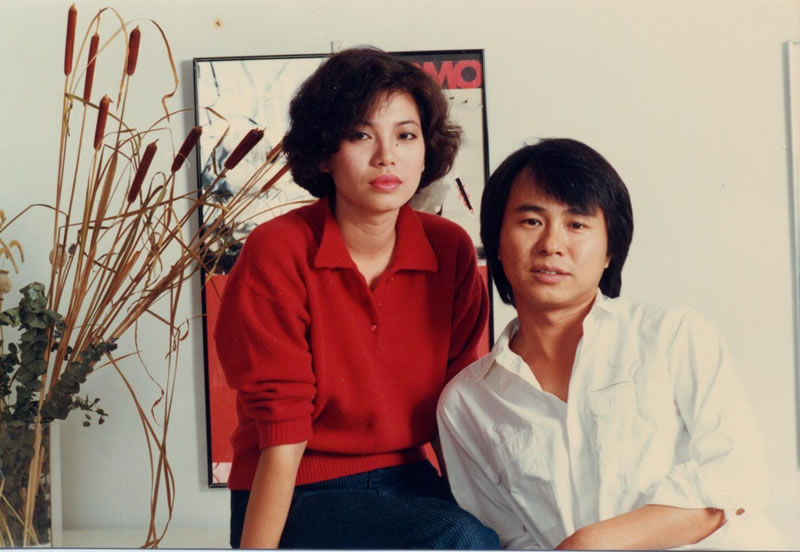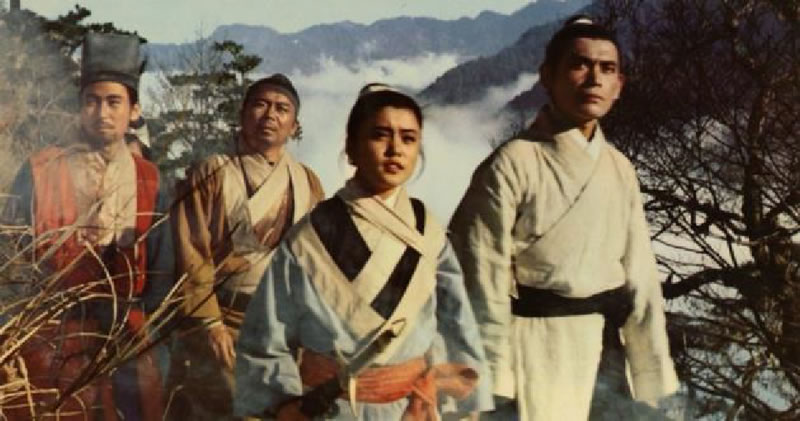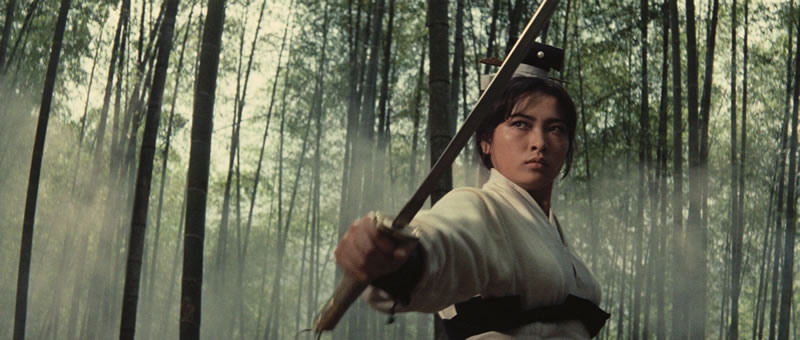The Special Screenings section presents 5 new films from Asia and around the world.
The Net opening film
Korea / 2016 / 112 min. / Director: KIM Ki-duk
North Korean fisherman Nam lives peacefully with his wife and child, until his net gets caught up in his engine and he inadvertently ends up crossing a watery border with South Korea. Upon being captured by South Korean police, he is tortured under suspicion of being a spy, and pressured to defect to the south. All he wants to do is return to his family, and his fierce determination eventually enables him to make it back to North Korea. He is outwardly welcomed by his nation as a hero who has overcome the temptations of capitalism, but an even crueler fate awaits him... The extreme violence that was a trademark of KIM Ki-duk’s works has been shelved for this film, a masterpiece that presents a profound depiction of one man at the mercy of political systems. RYOO Seung-bum’s passionate performance as Nam is one of its many highlights.
Trivisa closing film
Hong Kong / 2016 / 97min. / Director: Frank HUI, Jevons AU, Vicky WONG
Hong Kong on the eve of the handover to China in the late 1990s is the stage for this film the script of which takes its clues from the lives of three criminals who actually existed at the time. YIP earns money as a smuggler despite being on the police's wanted list. KWAI regularly does small time heists with lower risks of being arrested. CHEUK has netted a large ransom from kidnapping a wealthy person's son. Despite having never met, their fates are completely altered by a rumor spreading through the criminal world that these three 'Kings of Thieves' are planning a big score prior to the handover.... Producer Johnny TO entrusted the film to three award-winning directors from the Hong Kong Fresh Wave Short Film Competition which TO himself chairs. The film was shot in a very fascinating manner with each director overseeing one of the main character's story.
Italy, France, USA / 2016 / 105 min. / Director: Amir NADERI
Having shot his previous film, "CUT", in Japan, Amir NADERI's newest work has been shot entirely in Italy. In the late Middle Ages, Agostino lives with his wife and child in a village at the foot of a mountain. The giant mountain towers over the village like a wall, blocking out most of the sun's light which makes farming impossible. Agostino, ignoring advice to move away, continues to live in the village, but their wretched condition only persists. In the end, Agostino takes the surprising action of challenging the mountain itself.... The scenario of "continuing to do a single action as if possessed by something" common in NADERI's films is, in one sense, driven to the extreme limit in this atypical masterpiece. The film screened at the Venice Film Festival where NADERI was honored with the "Glory to the Filmmaker" award.
France, Cambodia / 2016 / 78 min. / Director: Rithy PANH
As with the director's previous film, "The Missing Picture," this film continues to deal with the Khmer Rouge years of Cambodia. It world-premiered at the Cannes Film Festival. In a small, cramped room, a young man believed to be PANH himself (this has not been confirmed) is shown living everyday life through a sometimes realistic, and sometimes fantastical portrayal. The film encourages viewers to contemplate the pervasive problem of the disparity between the ideal of revolution and the actual result it produces by referencing various images and slogans from the Khmer Rouge years along with text by MAO Tse-tung, the Jacobin Club of the French Revolution, among others. This is a masterpiece unlike PANH's previous films and should also be called a cinematic essay which poetically describes the historical tragedy of his homeland.
Hong Kong, France / 2016 / 163 min. / Director: WANG Bing
15-year-old XIAO Min boards a long distance train and heads for Huzhou in the Zhejiang province on the east coast of China, far from her home province of Yunnan. Her goal is to work at a garment factory. Working there are women who have migrated from various parts of China.... The latest film by WANG Bing illustrates a side of contemporary China through female laborers working at a garment factory. The film begins with XIAO Min's journey, but thereafter the camera freely moves between several characters. Leaving an especially strong impression is a scene in which XIAO Min's co-worker, LING Ling, stands up to her husband's intense abuse and could be called the best section of the film. World premiering at the Venice Film Festival's Orizzonti section, the film won the Orizzonti Award For Best Screenplay.
Special Screenings (FILMeX Classic)
Ilan / 2016 / 63 min. / Director: Mohsen MAKHMALBAF
Mohsen MAKHMALBAF’s incisive inquiry into the significance of the 1978 Iranian Revolution, in which he himself was involved. It depicts three eras: prior to the revolution, in which it traces the fates of an anthropologist, and his daughter who works in a hospital’s emergency ward; during the revolution; and its aftermath. The film was first screened in 1990 at the Fajr Film Festival in Teheran with 25 minutes removed by censors, but further censorship led to it being banned from screening altogether, and the negative was confiscated by authorities. From then on, it had been impossible to see this elusive work in Iran, or anywhere else in the world. In recent years, the negative was somehow taken out of Iran and restored in London, enabling its selection as the opening screening in the Classics section of this year’s Venice Film Festival. The original pre-censorship version is said to have been 100 minutes long.
Taiwan / 1985 / 120 min. / Directors: Edward YANG
Edward YANG’s second feature. Lon is a former professional baseballer who has taken over his parents’ cotton-spinning business. Chin, his childhood friend and lover, is considering emigrating to the United States. This masterwork, set in a Taipei being transformed by economic growth, depicts the relationship between a man trapped in his past, and a woman trying to escape her own. YANG’s close colleague HOU Hsiao-hsien produces, shares scriptwriting duties, and plays Lon, while YANG’s then wife and popular singer TSAI Chin takes the role of Chin. In addition, other filmmakers involved in the New Taiwanese Cinema movement such as WU Nien-jen and KO I-chen appear as actors, while HOU’s screenwriter CHU Tien-wen co-penned the script, making it a virtual monument to New Taiwanese Cinema. This version was digitally restored by the Cineteca di Bologna.
Taiwan / 1967 / 111 min. / Director: King HU
A massive hit around Asia when first released, this classic of Wuxia cinema was the starting point of a huge boom in kung-fu films, and further enhanced King HU’s reputation. After coming to power in Ming-era China and imposing his tyranny, eunuch Tsao executes a rebellious government official for a crime he did not commit. Fearing a reprisal, he dispatches secret police soldiers to the hinterlands to exterminate the official’s surviving family as well. The soldiers take up residence at the Dragon Gate Inn to lie in ambush for their targets, but a succession of mysterious swordsmen show up. As their various objectives intertwine, a ferocious battle eventually breaks out between the soldiers and the swordsmen... Hu, who had previously directed two productions for Hong Kong company Shaw Brothers, made this film in Taiwan with a cast of mostly up-and-coming actors. It also features MIAO Tien, who later became a regular in the works of TSAI Ming-liang.
Taiwan / 1971 / 180 min. / Directors: King HU
A sublime work that won the Cannes Film Festival’s Technical Grand Prize, and became a landmark achievement in Asian action cinema. In late Ming-era China, lowly scholar Ku meets a mysterious and beautiful woman in a deserted house which is rumored to be haunted. Eventually, it comes to light that she is the daughter of a government official who was driven to death by a eunuch, and is secretly plotting revenge... This expansive drama engages many stars from King HU’s films, including HSU Feng, who went on to become a prominent producer; SHIH Chun, who also appeared in “Dragon Gate Inn”; PAI Ying; and Hong Kong star Roy CHAO, who subsequently became a regular cast member for HU. In particular, it would be no exaggeration to say that the renowned bamboo forest battle sequence is one of the most beautiful action scenes in the history of cinema.
Japan / 1981 / 105 min. / Directors: KATO Tai
A posthumous work by master filmmaker KATO Tai, for whom this year marks the centenary of his birth. It follows the endeavors of Ondekoza, a Japanese drumming ensemble formed in 1971 who were based on the island of Sado at the time. Although it could be described as a documentary that presents a day-to-day depiction of the communal lifestyle, as well as performances of the group’s young members at concerts, on location, and on sets, it is first and foremost a masterpiece that comprehensively exhibits KATO’s artistic approach, including unusual camerawork. Production took two years to complete, but various circumstances precluded a theatrical release, and chances to see it have been limited to film festivals and retrospective screenings. This digitally remastered version received its world premiere in the Venice Classics section of this year’s Venice Film Festival.


